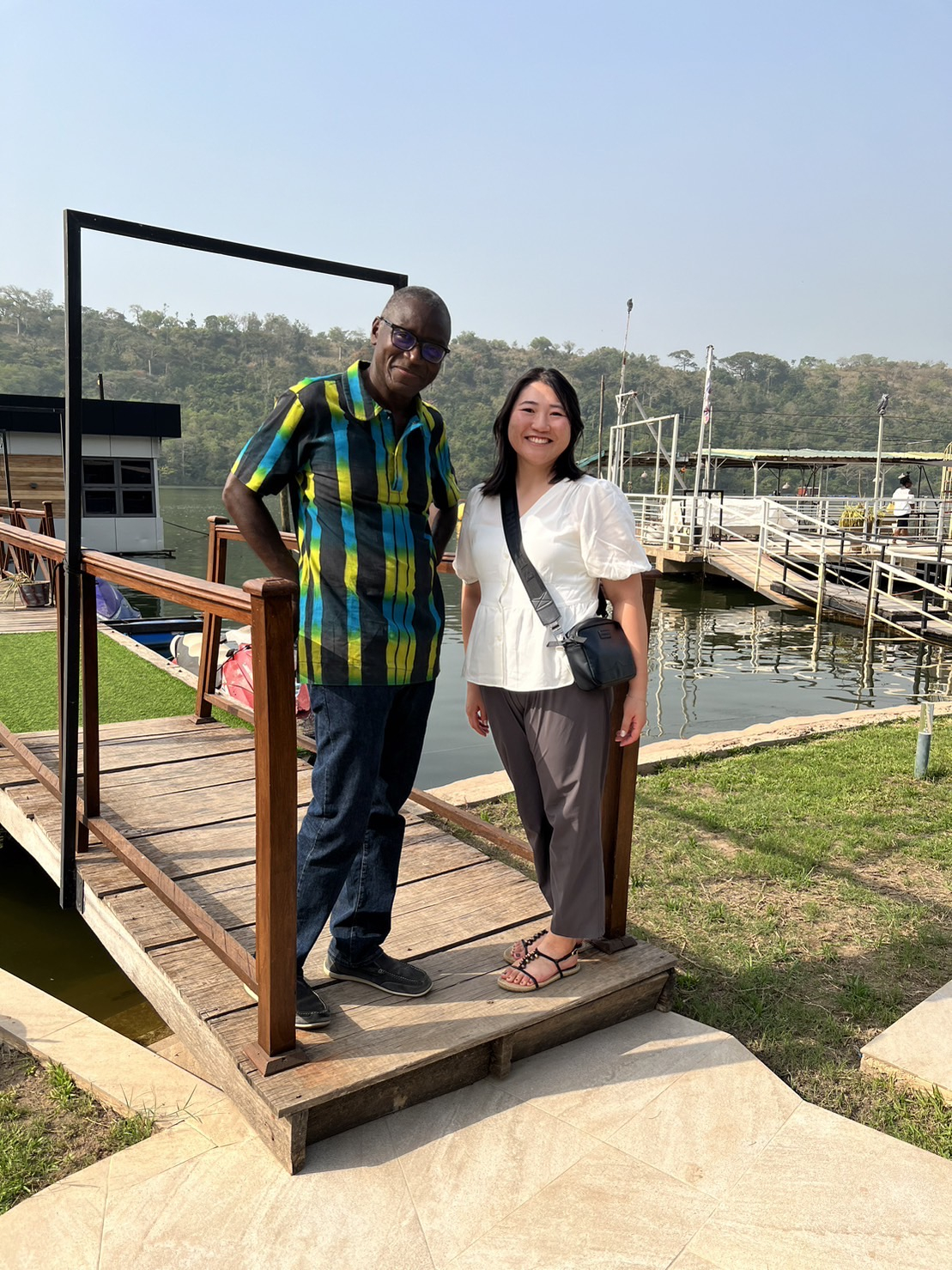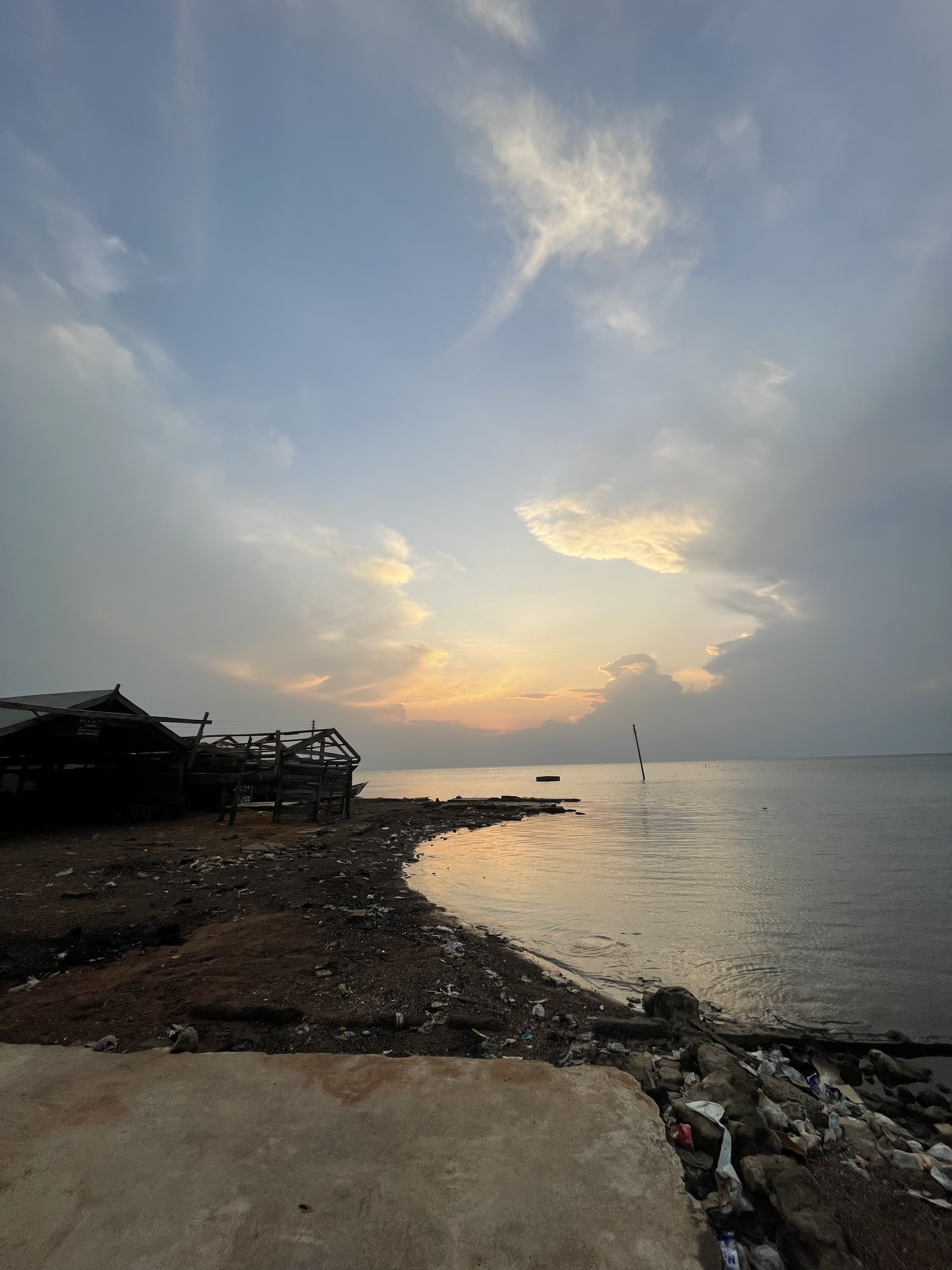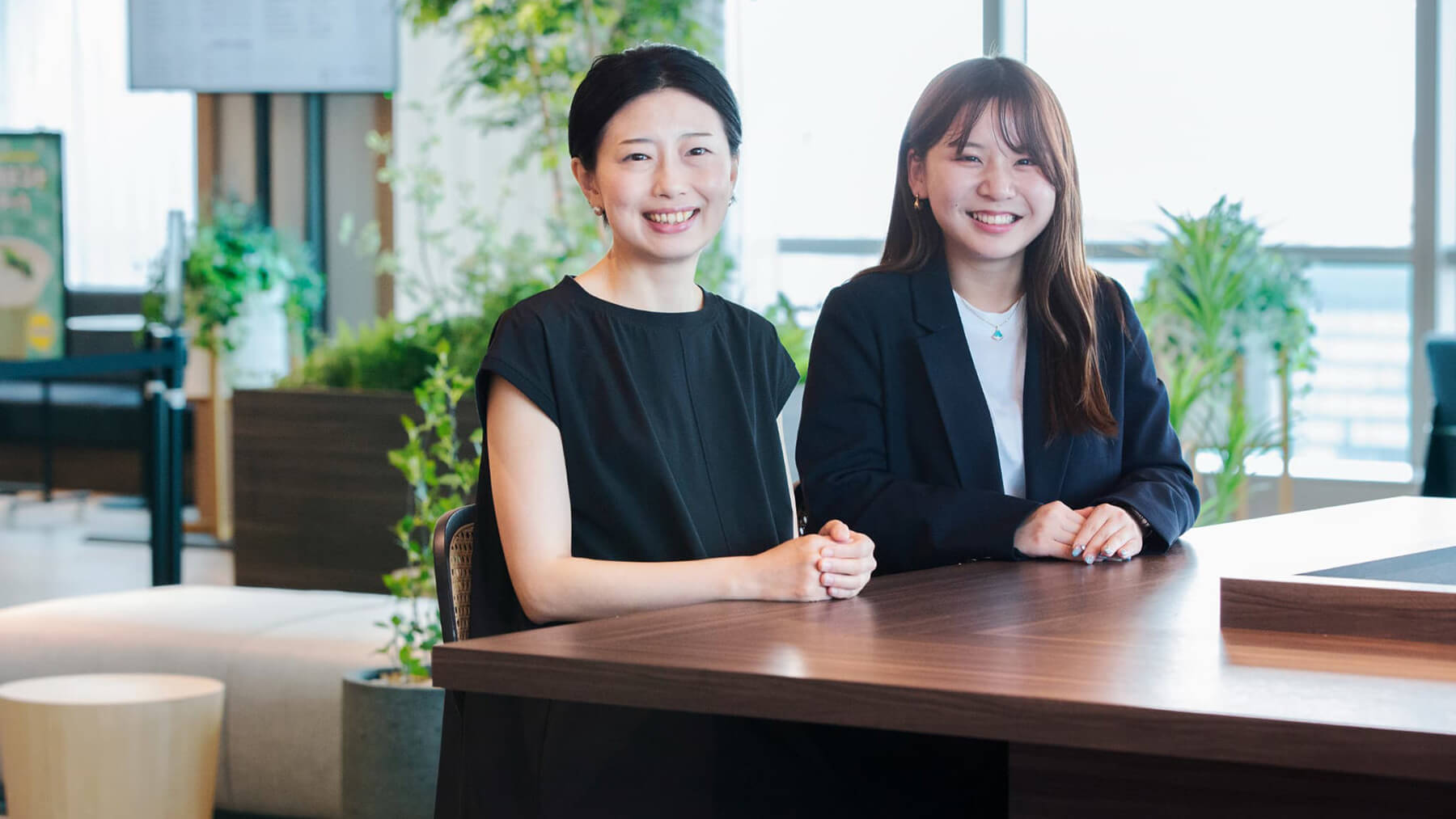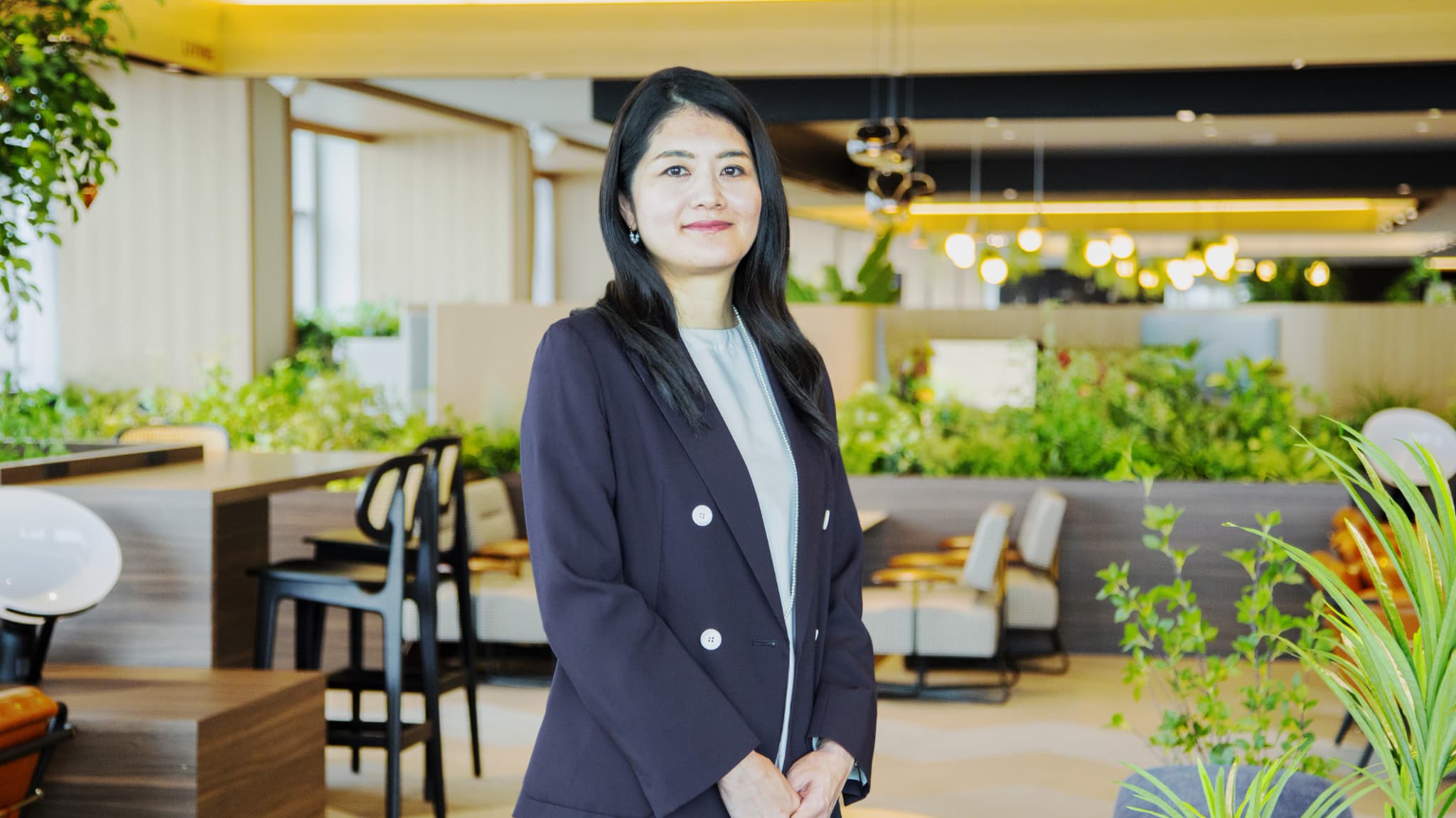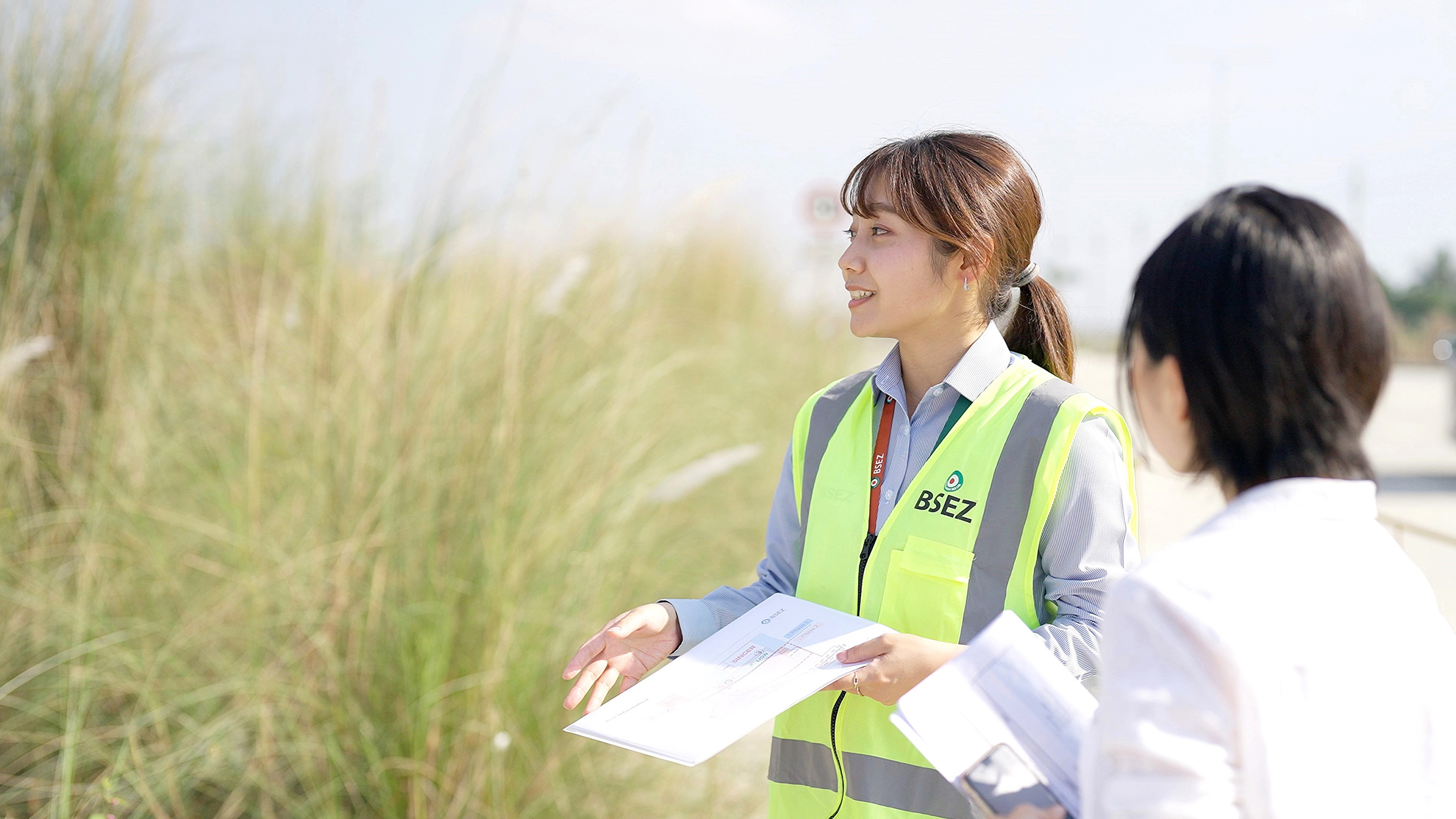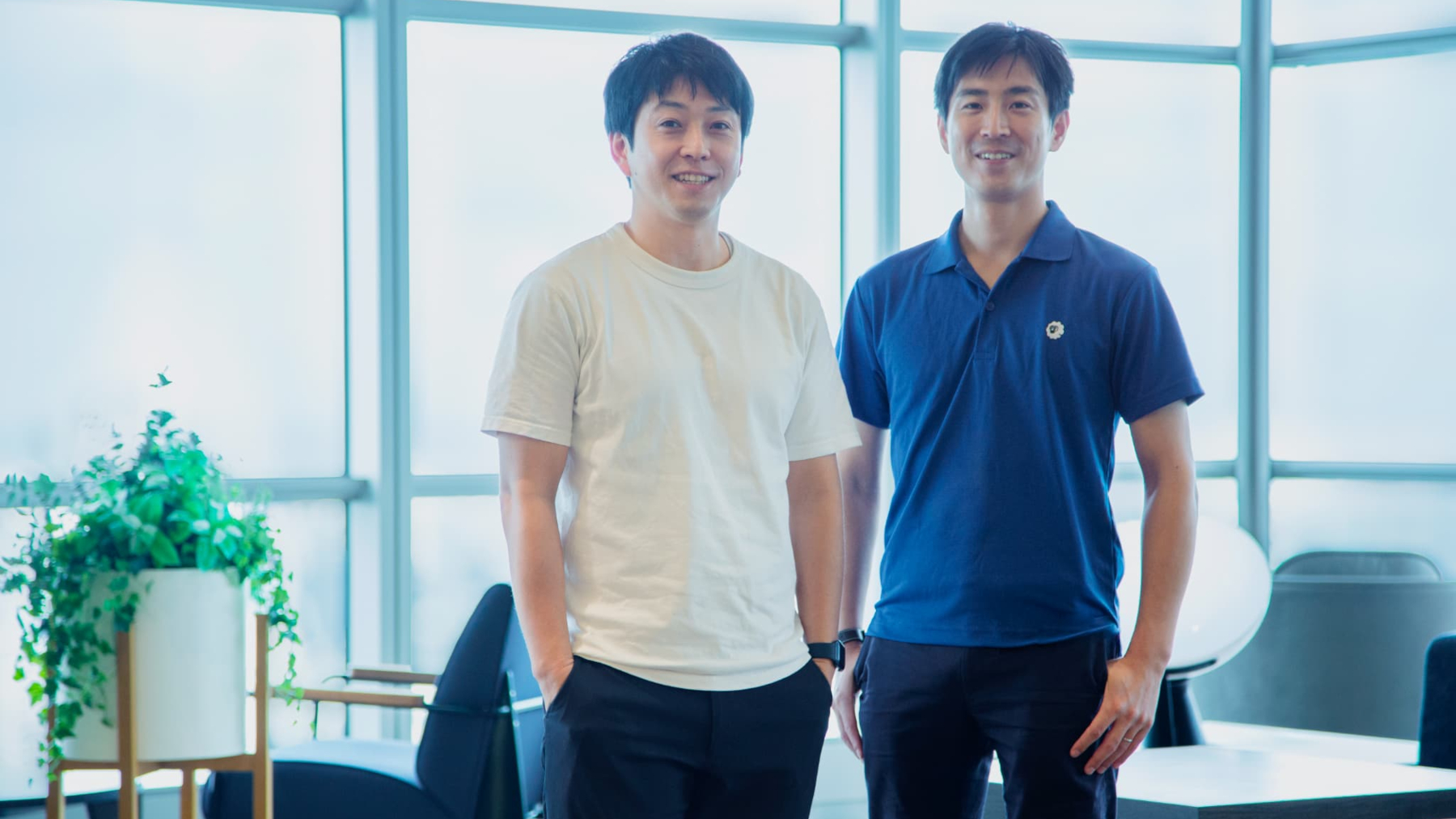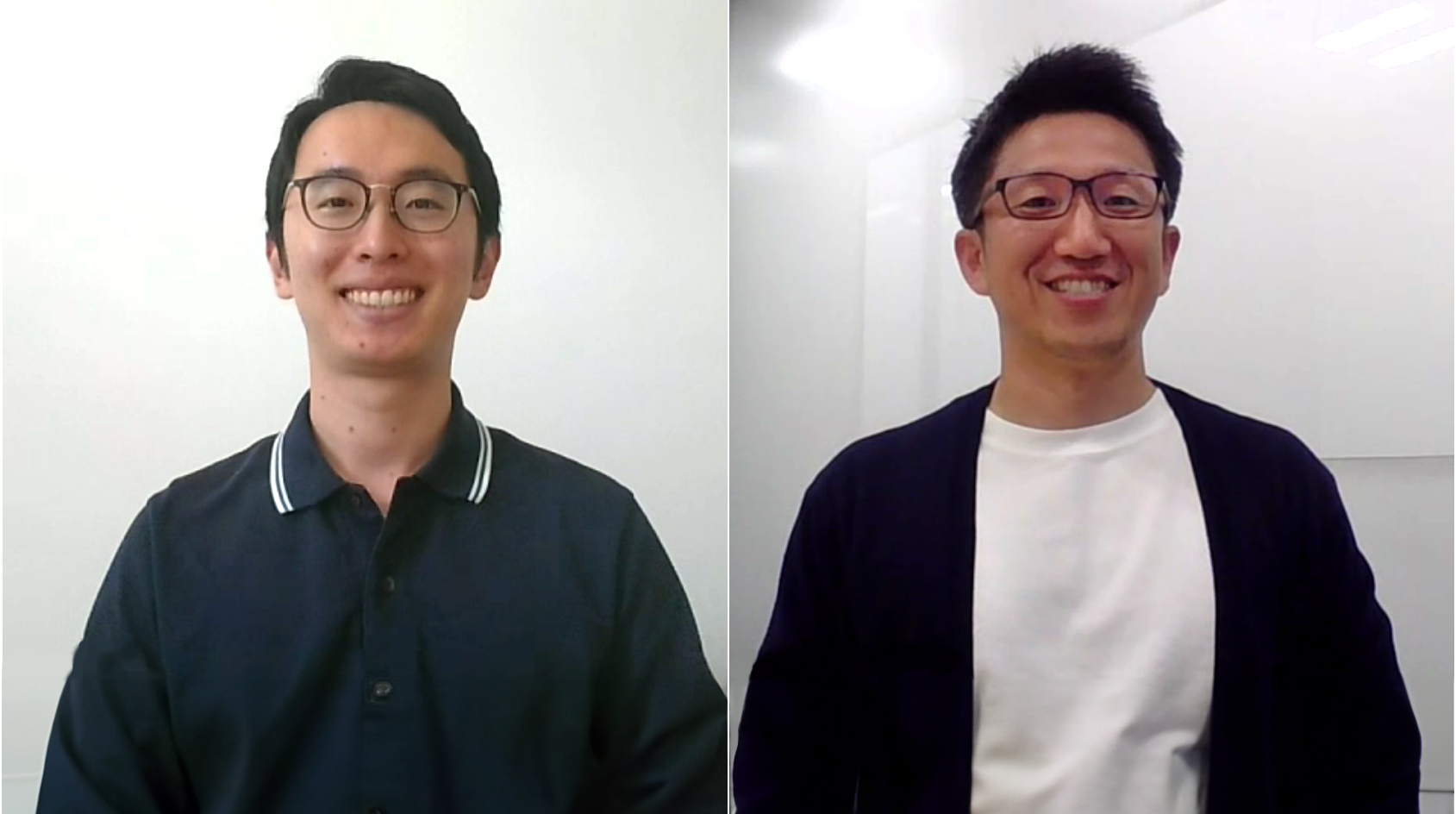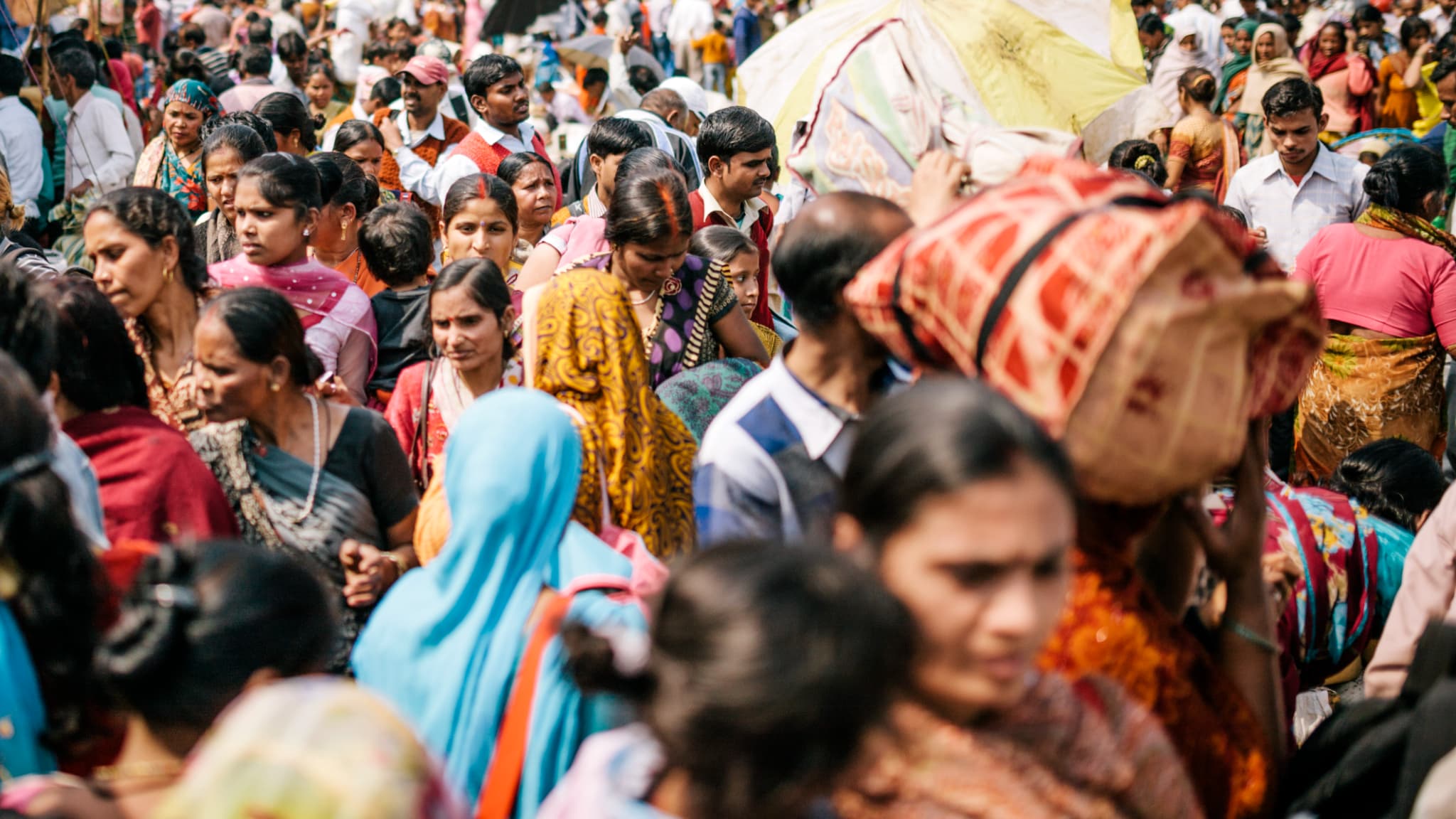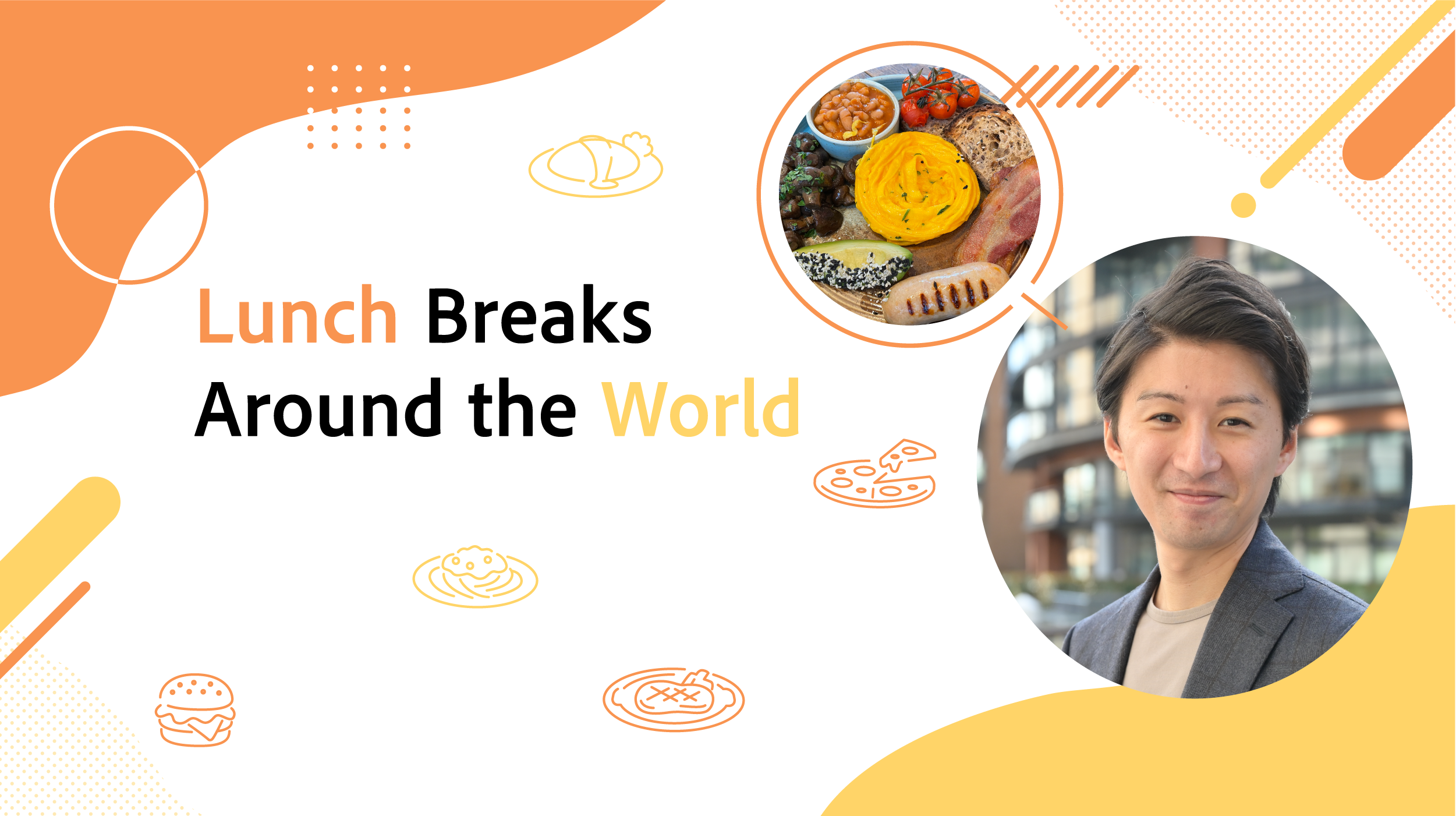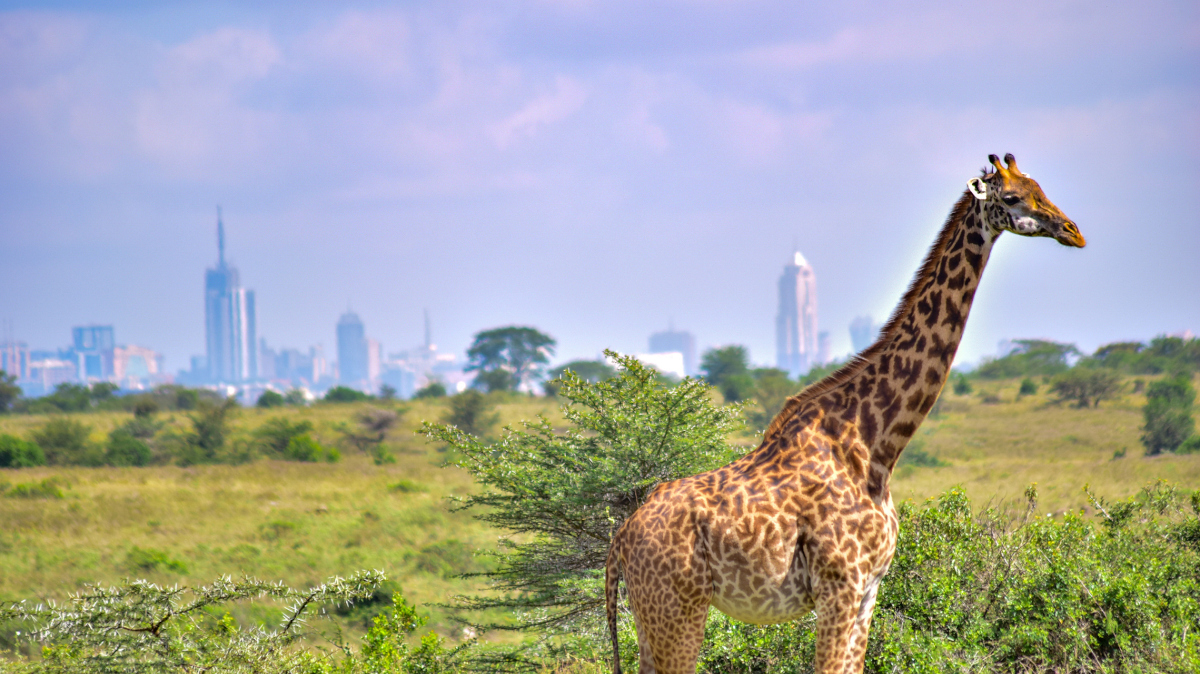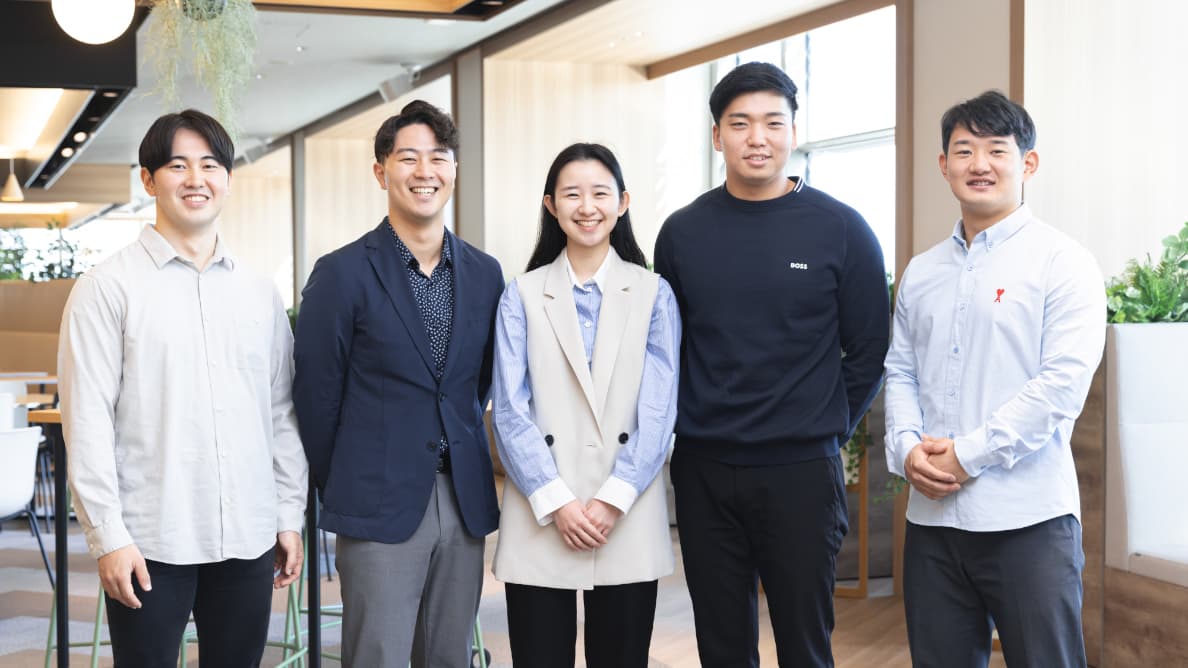
- TOP
- Enriching+TOP
- Embracing "This is Africa" – Young Japanese Expats Abroad Contributing Locally and Globally
2024.4.17
Culture
Embracing "This is Africa" – Young Japanese Expats Abroad Contributing Locally and Globally
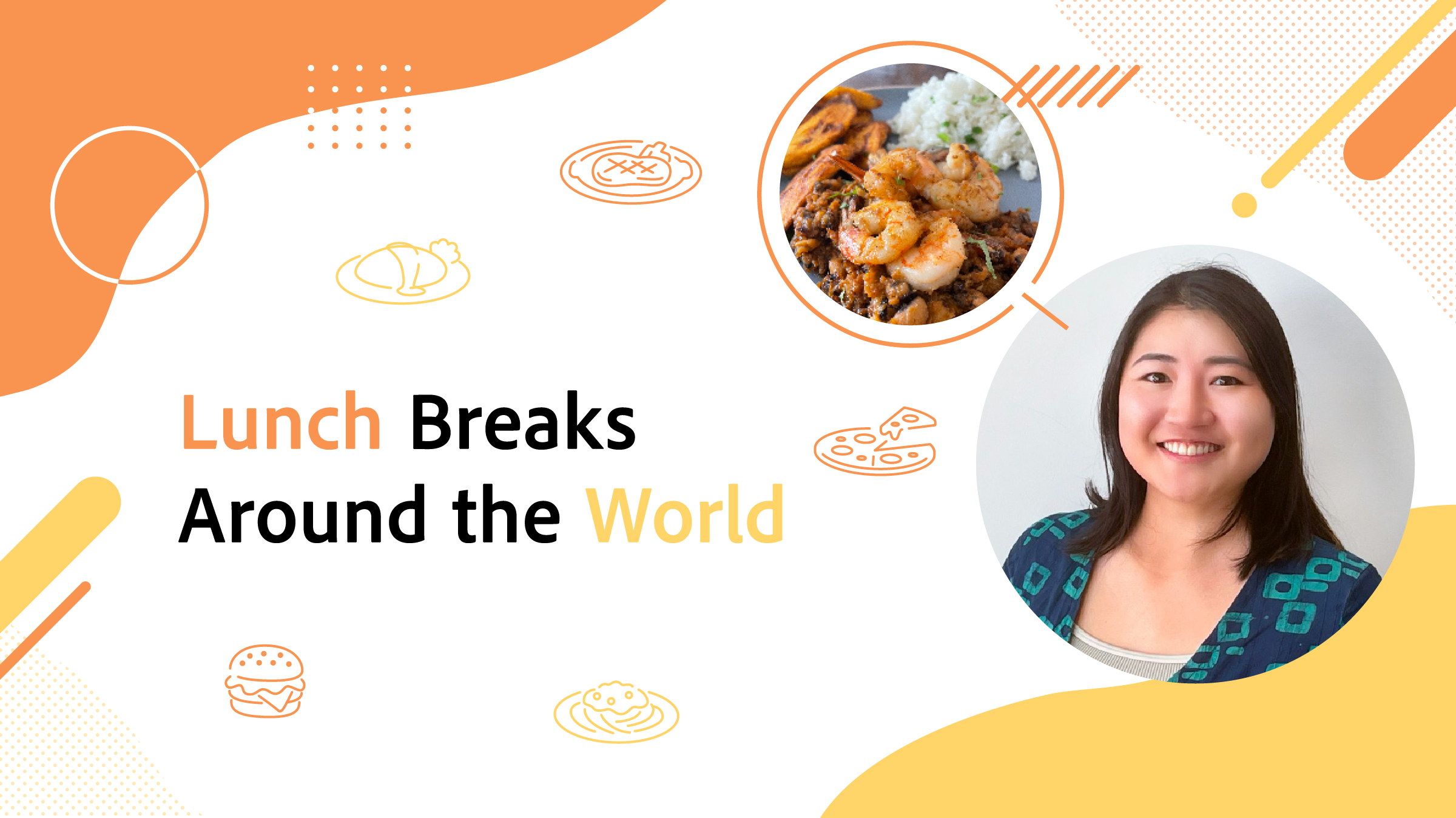
In our series, “Lunch Breaks Around the World”, we explore the daily lives of employees working around the world within the Sumitomo Corporation Group, an integrated trading and business investment company, by starting with a simple question: "What did you eat for lunch today?"
In this first installment, we interviewed Natsuko Osaki of Power Infrastructure Dept. No.4, who has been stationed in Ghana since April 2022 working alongside local employees to support the country's power generation business. We asked about the challenges of her job, her unique experience in Ghana and life in the vibrant West African country.
-

Overseas Energy Solution SBU
Overseas Energy Solution Unit No.3 (Middle East, Africa and CIS)Natsuko Osaki
Since joining Sumitomo Corporation in 2018, she has been part of Power Infrastructure Dept. No. 4 , where she principally works in asset management and new business development in the Middle East and Africa region. In April 2022, she was transferred to the power generation project company that operates the Kpone Combined Cycle Power Plant in Ghana as an overseas trainee (*), fulfilling a wish she had since her job-hunting days: to contribute to business development in Africa (As of March 2024).
*Overseas Trainee System: A system developing human resources who can create new value and play an active role on the global stage, thanks to their experience at overseas branches and operating companies.

- Q1. What’s on the menu for lunch today?
- Q2. What is the scope of your current work?
- Q3. What is the situation like at your workplace?
- Q4. What have been some challenging or rewarding moments in your work?
- Q5. What do you do in your private time?
- Q6. What does "Enriching lives and the world" mean to you?
Q1. What’s on the menu for lunch today?
Lunch with Natsuko Osaki
“Red Red Stew”
It’s one of my favorites: a classic dish loved in Ghana, "Red Red," accompanied by rice, chicken and shrimp. Red Red is a tomato-based bean stew that is paired with plantains. The name of the dish comes from the red palm oil used to cook it. The meal portions in Ghana tend to be large, and I often brought them home with me when I first started working here because I couldn't finish everything. But I started eating a lighter dinner or not eating at all later on in the day, and now I am able to finish the large portion sizes regularly. A number of Ghanaian cuisines feature dried fish powder, which is a familiar taste for Japanese people.
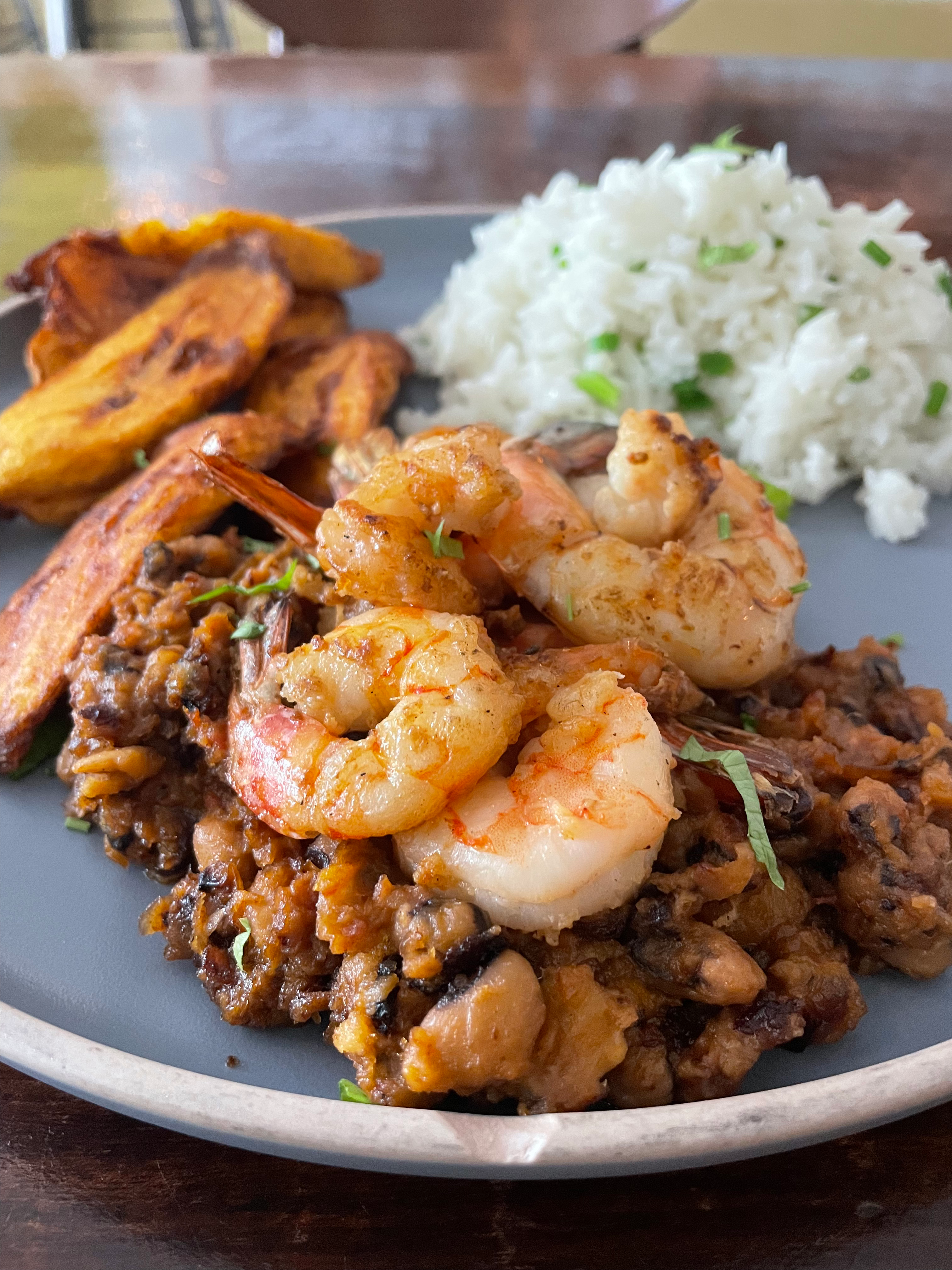
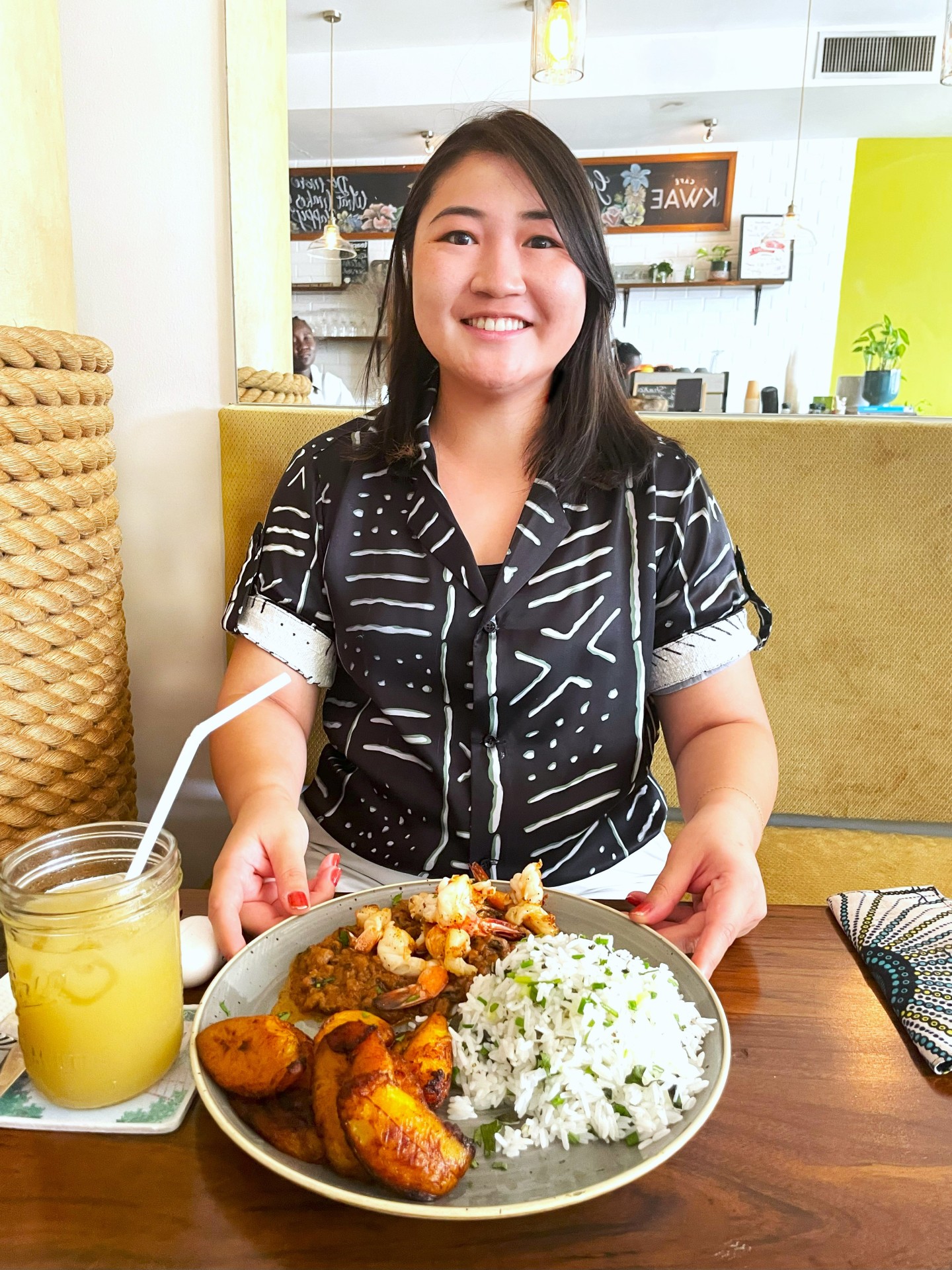
Q2. What is the scope of your current work?
As a financial associate at a power generation company, my work involves issuing invoices to Ghana's Electricity Authority and reporting to shareholders and financial institutions. I usually work in an office in central Accra, the capital, but when clients want to visit the power plant, about an hour's drive from the capital, I travel there as well. To date, we have taken clients from a wide range of sectors to the power plant so that they can familiarize themselves with Sumitomo Corporation’s presence and role in Ghana.
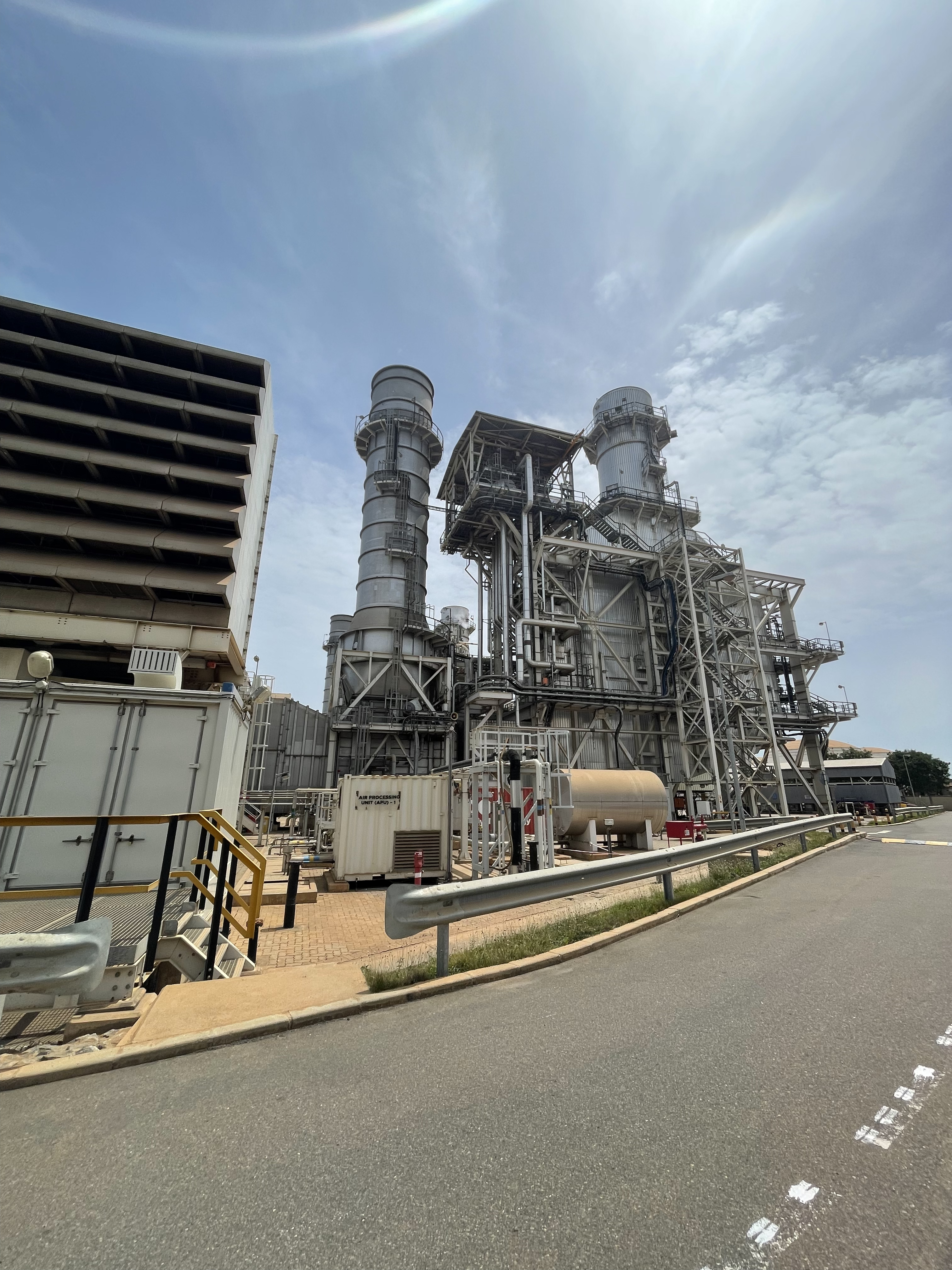
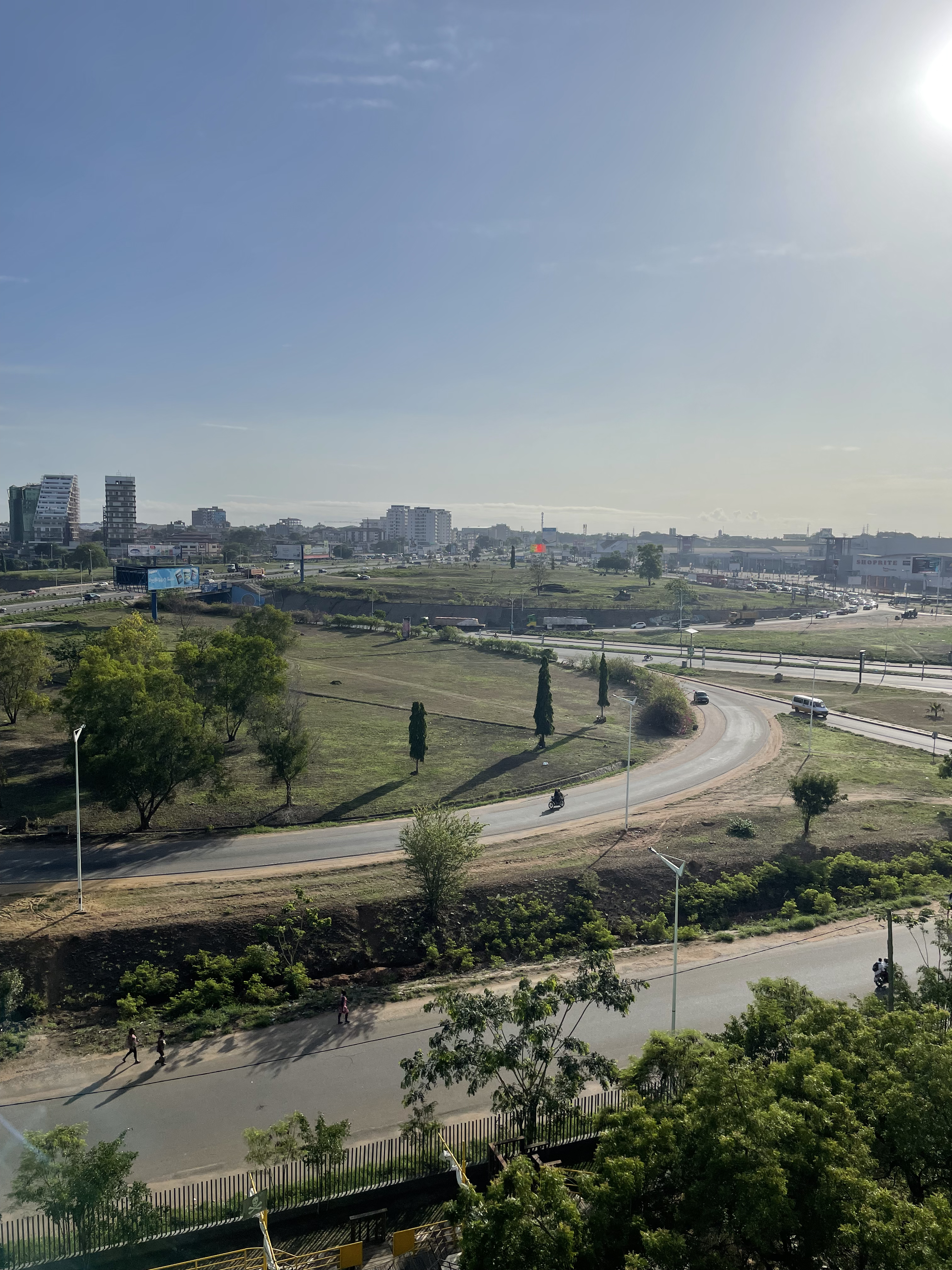
Q3. What is the situation like at your workplace?
I come to work in the office two or three times a week, and the rest of the time, I work remotely from home. Due to the continuing impact of the coronavirus pandemic, we have continued with the hybrid working style, but recently the finance team has been getting together in person once a week. This has also given us more opportunities to interact with other employees. Perhaps because a number of Japanese expatriates have worked here in the past, the workplace is very welcoming, and some Ghanaian staff even use Japanese expressions like "Mata ashita" (See you tomorrow) and "Otsukaresama desu" (Good work). My team consists of six members: the Chief Financial Officer (CFO), who is also here on dispatch from Sumitomo Corporation, four Ghanaian staff members and myself. Although we carry out important duties that include interacting with the government, our team is always joking and the atmosphere is very friendly.
In the almost two years since I came to Ghana, I have often heard the expressions "This is Africa" and "This is Ghana." These expressions are used in situations where dynamics and energy not found in other regions are prevalent. They also carry a nuance that what is common sense for those from outside is not always applied in Africa or Ghana. Keeping this in mind at all times, I try to communicate with my colleagues with respect to the Ghanaian culture and rules, rather than imposing my Japanese experiences and ways of thinking.
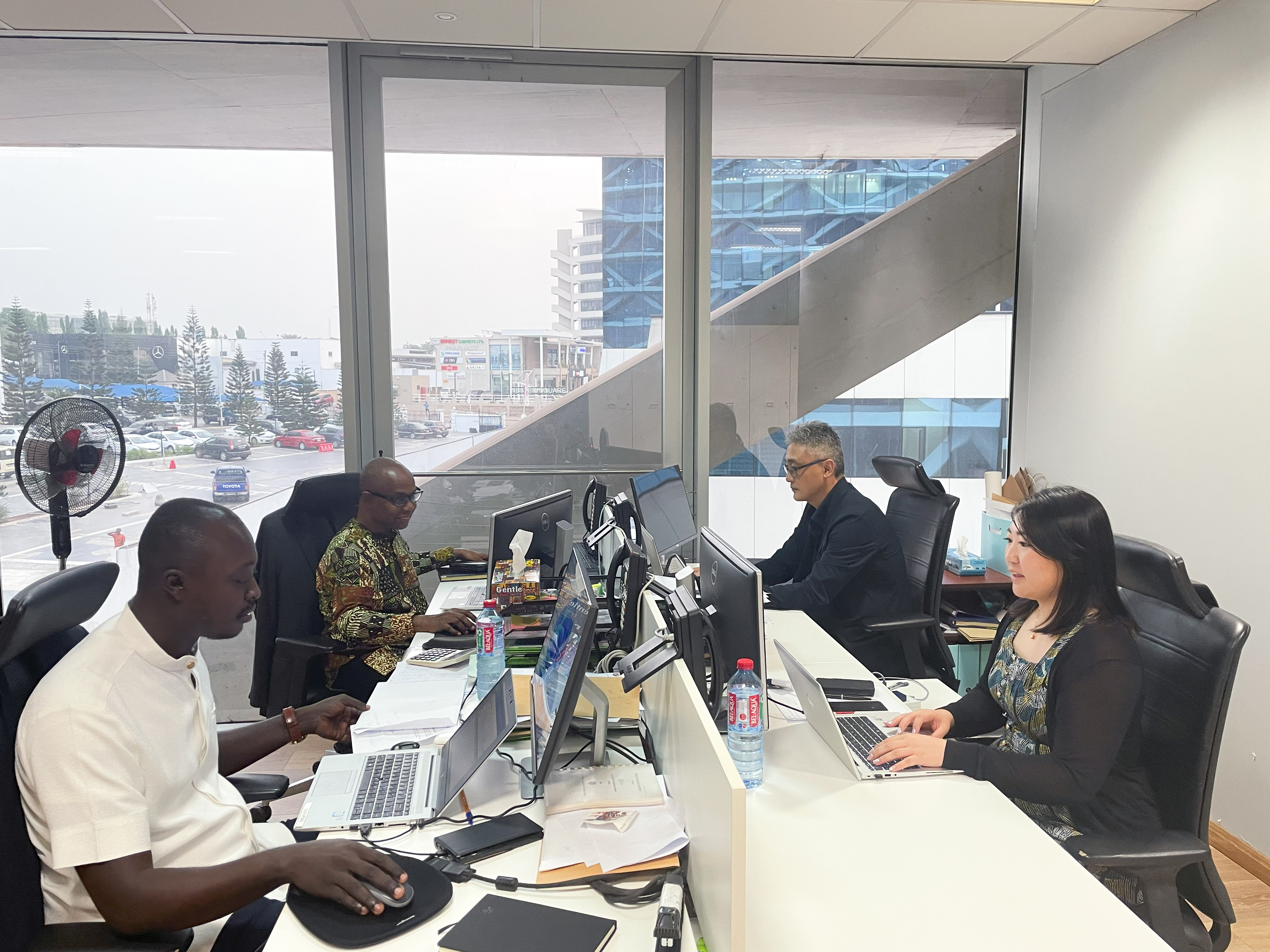
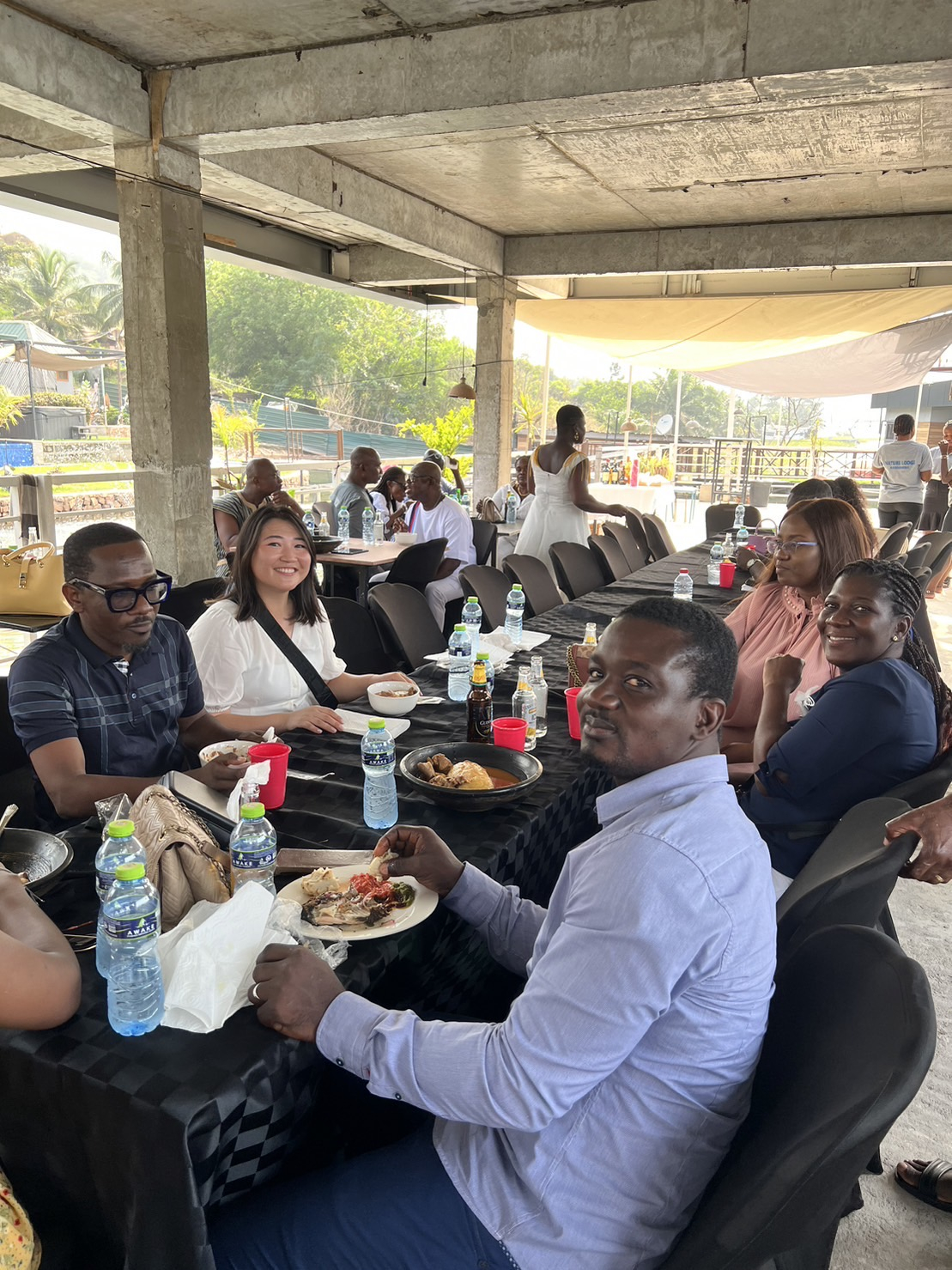
Q4. What have been some challenging or rewarding moments in your work?
When the quarterly board meetings come around, the entire finance team works together to create presentation materials on a tight schedule. When I first arrived, the team occasionally struggled with preparing necessary materials on time and meeting submission deadlines. But through effective communication via email and verbal discussions, as well as frequent checks on our material preparation progress, our team has become confident in dealing with strict deadlines. I was happy to see our team grow together to make sure everything is ready on time.
Everyone on our team has a unique way of doing things and their own sense of urgency, and sometimes things do not proceed as smoothly as we would like, which can be very challenging. But every day I feel a sense of presence unique to our field, and the rewarding experiences outweigh the hard work. The Kpone Combined Cycle Power Plant generates nearly 10% of Ghana’s total power, and this power being used in the capital of Accra underscores the impact and importance of my work to society. It motivates me to continue working hard to be surrounded by the consumers on a daily basis because I have a profound understanding of how much not having electricity could impact their lives.
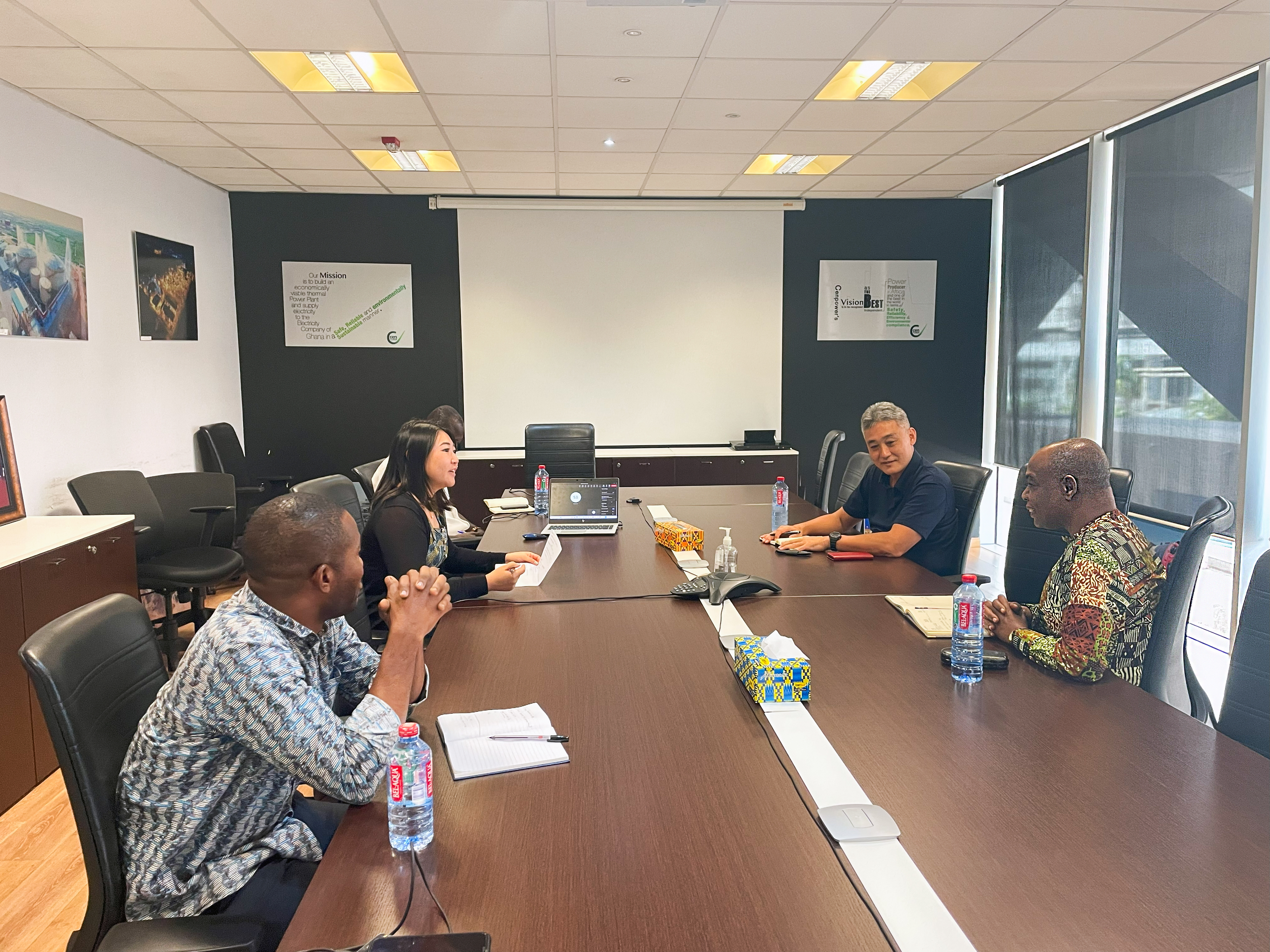
Q5. What do you do in your private time?
Many Japanese staff working in Ghana spend their weekends playing golf or tennis, and I play golf and practice boxing once a week. In Ghana I don't walk outside as much as I used to, so exercising through golf and boxing is a good way to clear my mind. I also try to take advantage of the experiences that only Ghana can offer, including traveling within the country. I’ve also had the opportunity to visit ten new countries, mainly neighboring countries but also in Europe, during my time here.
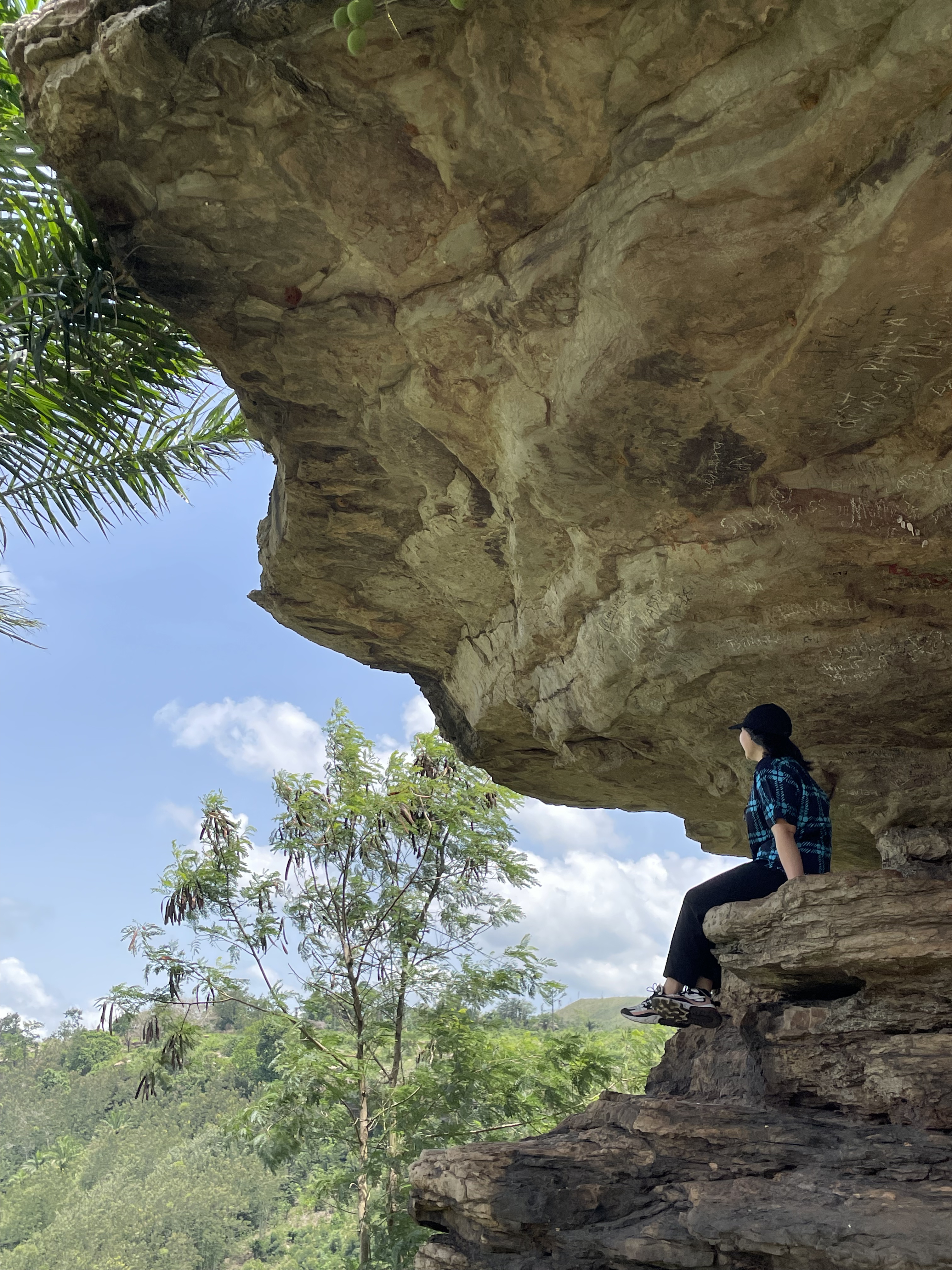
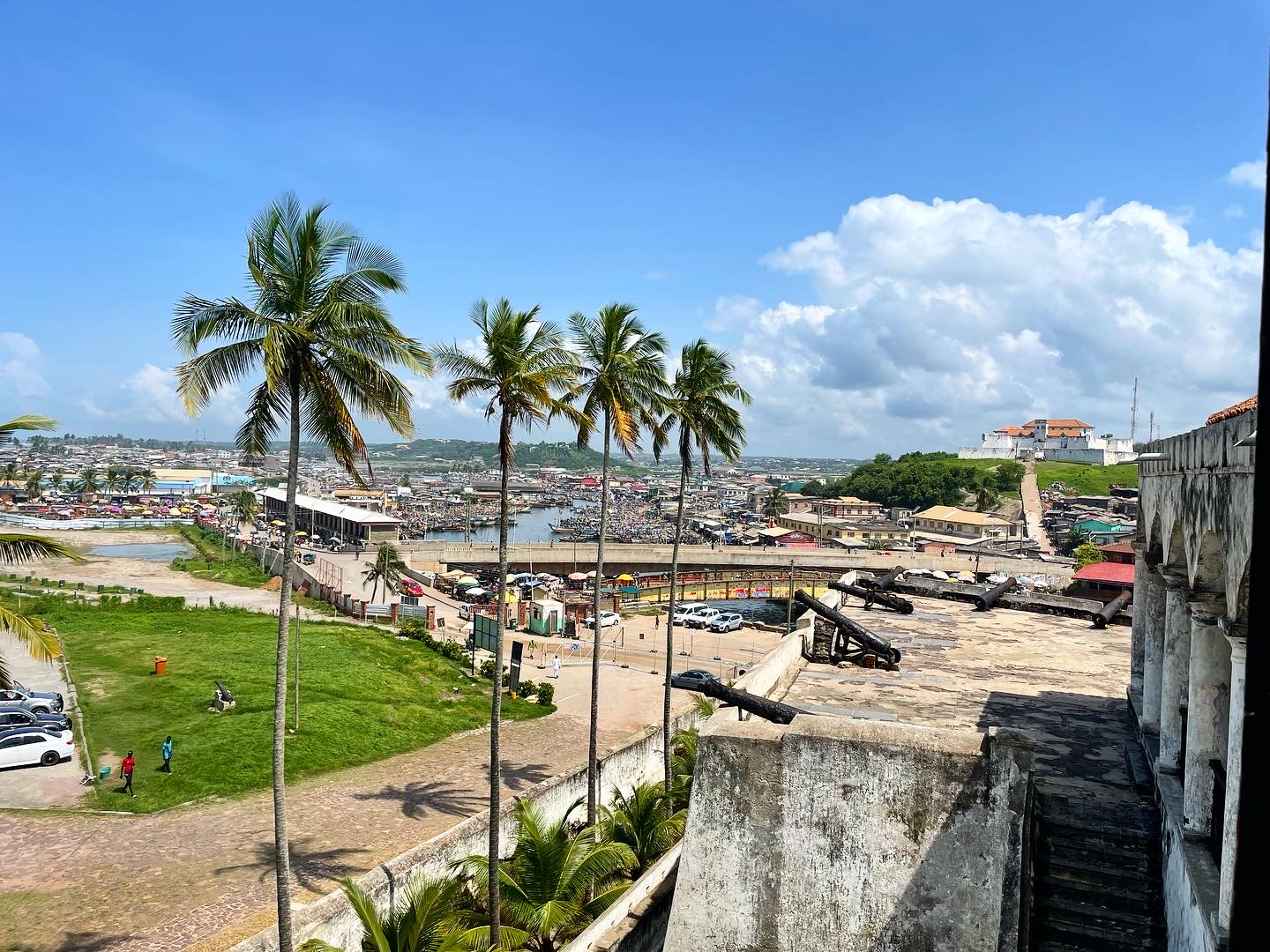
Q6. What does "Enriching lives and the world" mean to you?
The project I am assigned to has been seriously affected by the financial crisis in Ghana, and has gone through a number of challenging phases. I believe we have been able to persevere without giving up because "Enriching lives and the world" lies at the root of our business, as stated in Sumitomo Corporation’s corporate message. I am grateful for the chance to gain valuable experience in the field, even when things don't always proceed exactly as I had imagined.
